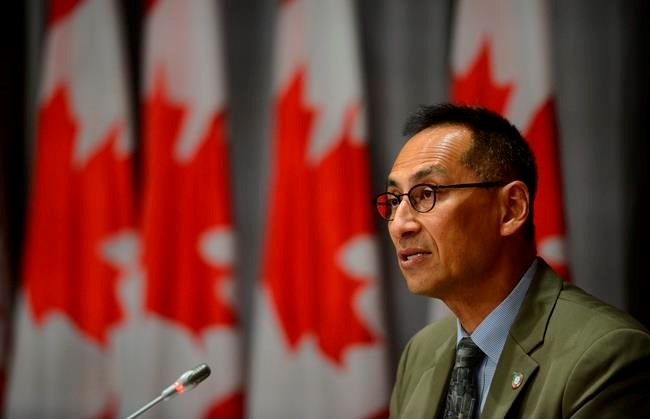OTTAWA — Singing and dancing in close quarters is not the way to party this summer, Canada's deputy public health officer Dr. Howard Njoo said Friday.
Njoo urged younger people to stop jamming bars and dance floors, to stop the spread of COVID-19. He offered that view after images of crammed bars in Montreal and a spike in new cases accompanied the reopening of Quebec bars and nightclubs this past week.
Njoo said there is "cause for some concern" because new COVID-19 cases are starting to rise after a steady period of decline. He said there have been 350 cases per day nationally over the last week compared to an average daily case count of around 300 in early July.
On Thursday, more than 430 cases were reported, he said.
"This coincides with increasing reports of individuals contracting COVID-19 at parties, nightclubs and bars as well as increasing rates of transmission among young Canadians in some jurisdictions across the country," said Njoo.
"I encourage everyone, especially young adults, to find creative ways to stay socially active in the time of COVID-19. Singing, mingling and dancing in close contact with others in closed spaces, in crowded places, is not the way to party this summer."
Njoo said indoor activities carry a higher risk to spread COVID-19 and that can have serious health consequences, even for young people.
However, Quebec Premier Francois Legault said Friday the recent resurgence of COVID-19 cases in the province is due to private gatherings rather than bar visits. That came a day after Legault said he was seeking a recommendation about whether to close bars and nightclubs again following a recent string of outbreaks in the Montreal area linked to those venues.
Legault urged people to respect the province's 10-person limit on gatherings as a traditional two-week vacation period begins.
"We're starting the construction holidays, it's fun to be in a big gang having a party, but it's not the time to do that," the premier said.
Njoo said younger Canadians have a duty to act responsibly to keep COVID-19 from spreading to older people, including their parents and grandparents.
"We are all in this together, and have a shared responsibility to help keep COVID-19 transmission low."
New rules went into effect in Ontario on Friday allowing restaurants to resume indoor service, as well as businesses such as bars and gyms to start welcoming patrons again. Movie theatres have also been greenlit but Cineplex Entertainment, Canada's largest movie-theatre chain, said it would not resume operations immediately.
Njoo said it is up to individual provinces and territories to decide how to ease COVID-19 restrictions. And he said it is up to everyone to exercise good behaviour such as washing hands, maintaining physical distancing and wearing masks as required.
"It is concerning that we're seeing the data show us that a greater proportion of our cases are now among what we call young adults, those less than 40," he said.
"I can remember that when I was younger I thought I was invincible — you can do anything, don't worry about it, it'll be OK."
- INTERACTIVE MAP: See the latest COVID-19 statistics across Canada by province/territory on our interactive map
While everyone has an equal risk of catching COVID-19, young people don't generally suffer the most severe health consequences, he said.
"Having said that, we have seen some anecdotes of young people having severe outcomes so you can't consider that everyone is immune from having serious consequence."
Without naming names, Njoo noted there have been cases where apparently fit celebrities have suffered badly from the illness.
Canadian actor Nick Cordero died earlier this month at 41 after a three-month hospital battle against a range of issues stemming from COVID-19.
The case of the tall, energetic, Tony-nominated theatre performer captured the world's attention as his wife posted daily social media updates on his condition, which included the amputation of his right leg.
This report by The Canadian Press was first published July 17, 2020.
Mike Blanchfield, The Canadian Press



